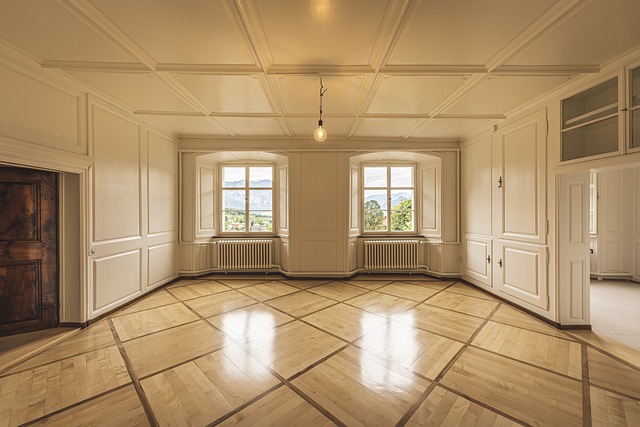Striking a balance between privacy and social interactions is crucial for students' well-being in shared housing. By prioritizing personal space, open communication, and clear boundaries, college residents can create comfortable living environments that enhance academic performance and mental health. Implementing student living tips such as designated study zones, quiet hours, and noise restrictions ensures everyone respects each other's privacy needs while fostering social connections. Effective balancing acts include defining common areas for socializing, maintaining open dialogue, and agreeing on expectations to create peaceful sanctuaries within the bustling campus environment.
Achieving balance in student housing is essential for a thriving academic experience. This article explores key aspects of creating harmonious environments that respect privacy while fostering social connections. We delve into strategies to enhance well-being through comfortable living spaces, effective communication, and managing the delicate balance between social life and personal space. Discover tips tailored for students navigating campus expectations, ensuring a satisfying and productive college journey. Learn how to optimize your student living experience by prioritizing both privacy and social engagement.
- Understanding the Importance of Privacy in Student Housing
- Fostering a Healthy Balance Between Social Life and Personal Space
- Creating Comfortable Living Spaces to Enhance Well-being
- Tips for Effective Communication in Shared Student Accommodation
- Navigating Social Expectations: Finding Your Rhythm on Campus
Understanding the Importance of Privacy in Student Housing

Achieving balance in student housing often hinges on understanding and prioritizing privacy. In environments where social interactions thrive, like college campuses, it’s easy for students to overlook the need for personal space. However, balancing social life with comfortable living spaces is crucial for overall well-being. Privacy allows students to recharge, study, or simply be themselves without constant social pressure, enhancing their academic performance and mental health.
For effective student living tips, designated private areas within shared housing are essential. This could mean having individual bedrooms or specific times set aside for quiet study or personal downtime. Such measures foster a sense of ownership over one’s space, promoting a healthier dynamic between students’ social lives and their need for privacy.
Fostering a Healthy Balance Between Social Life and Personal Space

Achieving a healthy balance between social life and personal space is crucial for students in shared housing environments. While socializing is a vital aspect of the college experience, maintaining privacy and comfortable living spaces is equally important. Students need dedicated areas to study, relax, and unwind from bustling social activities.
Implementing simple student living tips can foster this balance. Consider establishing clear boundaries within shared living spaces, such as designated study zones and quiet hours to respect everyone’s need for privacy. Additionally, encouraging open communication among roommates can create an environment where each individual feels heard and respected, ultimately enhancing the overall comfort and harmony of the space.
Creating Comfortable Living Spaces to Enhance Well-being

Creating Comfortable Living Spaces to Enhance Well-being
In college, achieving a balance between privacy and social interaction is vital for student well-being. Student housing environments should be designed to offer both personal retreat spaces and communal areas that encourage interaction. Balancing privacy college students need to focus and study with comfortable living spaces while also fostering a vibrant student social life is essential. This dual aspect ensures students feel at home, whether they’re studying independently or engaging in group activities.
Privacy student housing provides is crucial for academic success, enabling students to set their own schedules and work without interruption. However, incorporating student living tips that promote easy access to communal areas can help maintain a healthy balance. The ideal setup allows students to retreat to their rooms when needed while also having ample opportunities for social interaction in shared spaces, contributing to a fulfilling college experience.
Tips for Effective Communication in Shared Student Accommodation

Achieving balance in shared student accommodation requires a delicate mix of respect for personal space and fostering a vibrant social environment. To maintain balancing privacy college with an active social life, students should establish clear communication guidelines from the outset. This includes defining common areas and times suitable for socializing, as well as respecting each other’s need for quiet study time. Open dialogue is key; discuss expectations openly and honestly to ensure everyone feels comfortable.
Implementing student living tips such as designated noise levels after certain hours or using noise-canceling headphones in shared spaces can help maintain a harmonious atmosphere. Creating comfortable living spaces that encourage both individual focus and group interaction will also contribute to a balanced student housing environment.
Navigating Social Expectations: Finding Your Rhythm on Campus

Navigating Social Expectations is a crucial aspect of college life for every student. In a bustling campus environment, finding a balance between engaging in social activities and maintaining comfortable living spaces can be challenging. However, it’s not an insurmountable task. Students must recognize that having privacy is just as important as participating in the vibrant social scene. Balancing privacy and socializing requires setting personal boundaries, understanding roommate expectations, and learning to say no without feeling guilty.
Comfortable living spaces should provide a sanctuary from the hustle and bustle of campus life. To achieve this, students can utilize strategies like establishing designated quiet zones, setting regular cleaning routines, and agreeing on lights-out times with roommates. By prioritizing their own needs for privacy and calm, students can better enjoy the social aspects of college without feeling overwhelmed. Student living tips include open communication, active listening, and mutual respect, which are key to fostering a harmonious environment that supports both personal growth and engaging in student social life.






